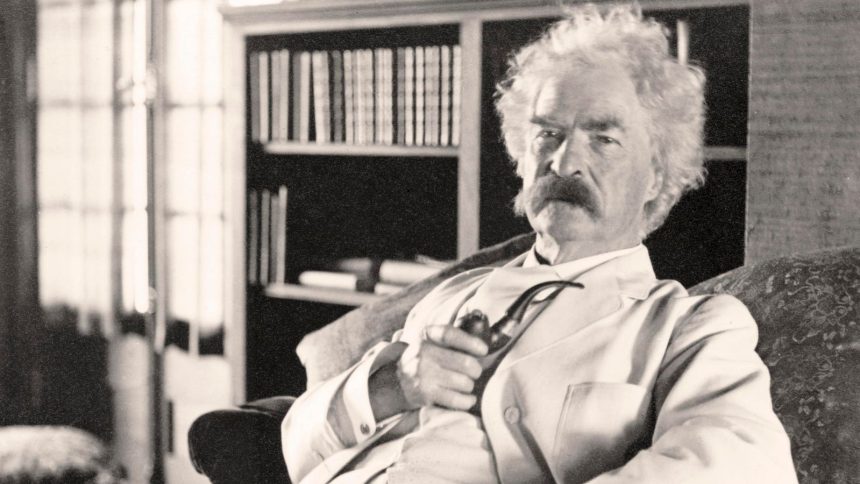Mark Twain, a towering figure in American literature, carved a unique niche for himself with his sharp wit, satirical prowess, and insightful social commentary. His diverse body of work, spanning adventure novels, travelogues, and social critiques, continues to resonate with readers across generations. Twain’s ability to weave compelling narratives with astute observations of human nature cemented his position as one of the greatest authors of all time. His legacy extends beyond mere entertainment; his works serve as a mirror reflecting the complexities, contradictions, and hypocrisies of his era, and often, our own.
While pinpointing the “best” among Twain’s extensive collection is inherently subjective, certain works stand out for their literary merit, cultural impact, and enduring popularity. These include classics like “The Adventures of Tom Sawyer,” “The Adventures of Huckleberry Finn,” and “A Connecticut Yankee in King Arthur’s Court.” Beyond these well-known titles, Twain’s repertoire boasts a rich tapestry of novels, essays, and short stories, each offering a unique glimpse into his multifaceted genius. From the poignant historical fiction of “Personal Recollections of Joan of Arc” to the biting social satire of “The Gilded Age,” Twain’s literary landscape is as diverse as it is captivating.
One of Twain’s posthumously published works, “Letters from the Earth,” provides a darkly comedic and irreverent critique of religion and human nature. Through the eyes of the exiled archangel Satan, Twain skewers conventional beliefs and offers a cynical yet thought-provoking perspective on earthly existence. This collection of satirical letters showcases Twain’s willingness to challenge established norms and explore controversial themes with his signature wit and irreverence. “The Mysterious Stranger,” another posthumously published work, delves into profound philosophical questions about good and evil, free will, and the meaning of life. While unfinished, the novella offers a glimpse into Twain’s grappling with existential themes, particularly during a period marked by personal loss and creative struggle.
Twain’s autobiographical works, notably his three-volume “Autobiography,” offer valuable insights into the man behind the pen. These personal reflections reveal Twain’s complex personality, his creative process, and his unwavering commitment to truth and authenticity. They offer a glimpse beyond the public persona of the humorist and storyteller, revealing a man grappling with personal struggles and societal injustices. “Following the Equator,” a non-fiction travelogue, showcases Twain’s keen eye for observation and his ability to capture the essence of diverse cultures. Through vivid descriptions and insightful commentary, he transports readers on a journey around the world, offering a glimpse into the social, political, and cultural landscapes of the late 19th century.
“The Man That Corrupted Hadleyburg” is a novella that explores the dark underbelly of human nature and the corrosive effects of greed. Through the story of a seemingly virtuous town exposed to temptation, Twain deconstructs the facade of morality and reveals the inherent flaws within human character. This cynical yet compelling narrative serves as a cautionary tale about the fragility of virtue and the seductive power of corruption. “Personal Recollections of Joan of Arc,” a historical novel, showcases Twain’s meticulous research and his deep admiration for the French heroine. This meticulously crafted narrative departs from Twain’s typical humorous style, offering a moving and reverent portrayal of Joan’s life and tragic demise.
“The Gilded Age,” co-authored with Charles Dudley Warner, is a satirical masterpiece that dissects the social and political landscape of post-Civil War America. This scathing critique of corruption, greed, and social inequality resonates even today, highlighting the enduring relevance of Twain’s social commentary. “A Connecticut Yankee in King Arthur’s Court” blends satire, science fiction, and historical fiction to create a hilarious and thought-provoking narrative. Through the eyes of a time-traveling American, Twain skewers the romanticized view of medieval times and critiques both the past and the present. “The Prince and the Pauper” explores themes of social injustice and the arbitrary nature of class distinctions through the story of two boys from opposite ends of the social spectrum who switch places. This classic tale underscores the importance of empathy and challenges societal hierarchies.
“The Adventures of Tom Sawyer” and “The Adventures of Huckleberry Finn” are arguably Twain’s most celebrated works, capturing the spirit of boyhood adventure and offering subtle yet powerful social commentary. “Tom Sawyer” is a nostalgic coming-of-age story that celebrates the joys of childhood and the idyllic charm of small-town life. “Huckleberry Finn,” however, transcends the genre of children’s literature with its unflinching portrayal of slavery, racism, and the hypocrisy of Southern society. Through Huck’s moral journey and his evolving relationship with Jim, the runaway slave, Twain delivers a powerful indictment of social injustice and the dehumanizing effects of prejudice.
Mark Twain’s literary contributions extend beyond entertaining narratives; they offer insightful social commentary that resonates even in the 21st century. His willingness to tackle controversial subjects, his unwavering commitment to truth, and his unique ability to combine humor with profound insights cemented his legacy as a literary giant. His works continue to be read, studied, and debated, inspiring generations of writers and readers alike. From the lighthearted adventures of Tom Sawyer to the searing social critique of Huckleberry Finn, Twain’s diverse body of work reflects the complexities of human nature and the enduring power of storytelling.



